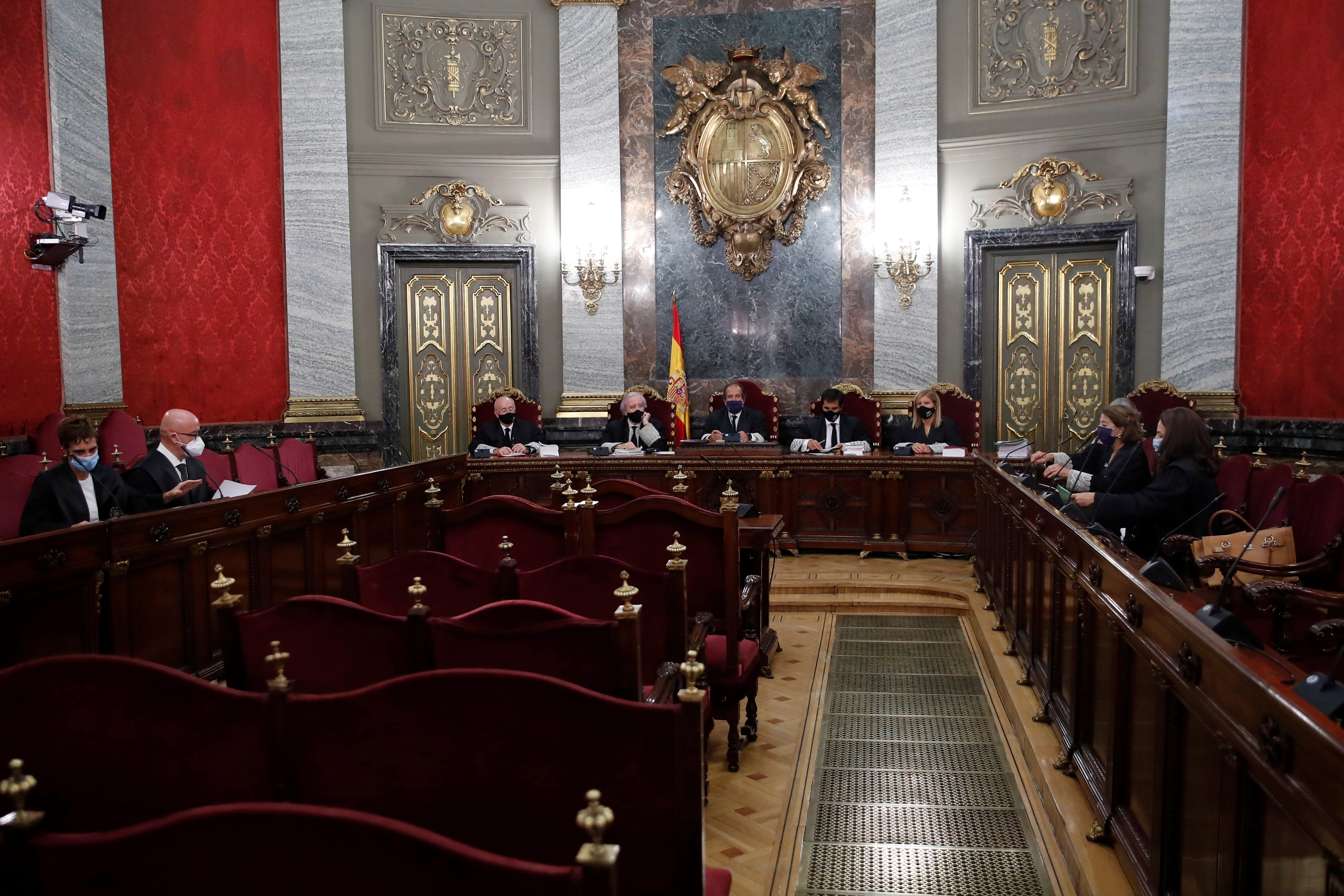Catalan president Quim Torra's defence team, led by lawyer Gonzalo Boye, today urged the Spanish Supreme Court to consult European justice on the question of his disqualification from office. Boye was representing his client at the appeal hearing held this Thursday in the criminal chamber of Spain's high court.
Gonzalo Boye argued that preliminary questions which the Spanish court had dismissed should be brought before the European courts. This, said the lawyer, would enable a response that "we can all live with" in the future, one which will "resist the passage of time and the weight of appeals." Boye persisted with this question because, he argued, a person can only be deprived of public office and political participation when it is a serious crime. “And we are not looking at a serious crime in this case,” he observed.
"The right to political participation is at stake. We should enter into European law now, it would really make all of us more comfortable. We have made a great effort in law and we would like to receive a response in law," he asserted in the hearing, held to consider the Catalan president's appeal against his disqualification from political office after being convicted for refusing to take down a "free political prisoners" banner.
In today's appeal hearing, Boye also set out all of the violations of rights on which the appeal is based, giving special emphasis to the "violation of the right to an impartial judge." "All of this arises from three words on a banner, which were a critique of the actions and consequences of the decisions taken by this chamber, the second chamber of the Supreme Court. The people that the complaint was addressed to were the judges of this court," he explained.
"Impartial judge" and "incompetent court"
Boye also brought up the issue of the dual employment of Andrés Betancor in order to denounce the "violation of the right to a trial with due guarantees" and the "denial of relevant testimonial evidence". He said that the Central Electorial Commission could not be impartial in bringing the case against Torra when one of its members, Betancor, was a salaried worker of the Ciudadanos, a complainant in the case.
He also denounced that the electoral commission, the body with which the whole process began, was neither competent nor superior in its status. He therefore defended the "conscious" decision of the Catalan president not to obey the order to remove the banner. "The order could not be complied with because it came from a body that was neither competent nor superior - the jurisprudence of this court says so, argued Boye. Had he obeyed the order, president Torra would have "violated the rights of Catalan government workers, because the instruction given required a general order", he asserted.
In his submissions, Boye also criticized the actions of the president of the Catalan High Court, Jesús María Barrientos, for having acted as president both of the court and the sentencing chamber. "This violates the guarantee of impartiality. The only question is where and when the rights of my defendant will be guaranteed," he asked rhetorically. "The public demonstrations of the judges who handed down the sentence which we are discussing today are more than enough. The composition of the chamber and the irregularity of the election of its judges has violated the rights of my defendant," he declared.
Alvarez de Toledo, an unexpected ally
Another of the arguments of the defence in rejecting the sentence is the "violation of the right to freedom of expression." Boye made it clear: the banner hanging on the balcony of the Palau de la Generalitat is a "political act." The lawyer put on the table the inviolability that Torra was protected by at the time of the events and to make a points gave a very curious example, that of the PP member of the Spanish Congress, Cayetana Álvarez de Toledo.
Specifically, he referred to the accusations that the PP politician made against the father of the Spanish deputy PM, Pablo Iglesias, not only in parliament, but also on television. "And nothing happened to her, because inviolability accompanied her wherever she said that, in line with the doctrine of the Supreme Court itself," he argued. "Displaying a political message on a building façade is not an administrative act, it is a political act," he added, hinting that the only explanation he found for the fact that the PP deputy and Catalan president did not receive the same treatment is that Torra represents a "national minority."

